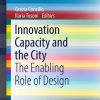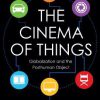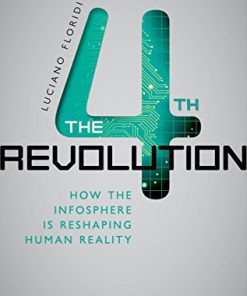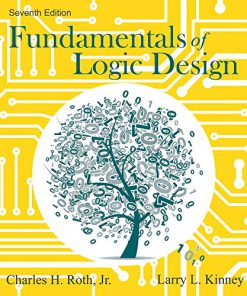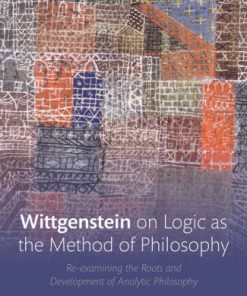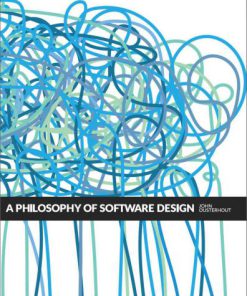The Logic of Information A Theory of Philosophy as Conceptual Design 1st Edition by Luciano Floridi ISBN 9780192570277 0192570277
$50.00 Original price was: $50.00.$25.00Current price is: $25.00.
The Logic of Information A Theory of Philosophy as Conceptual Design 1st Edition by Luciano Floridi – Ebook PDF Instant Download/Delivery: 9780192570277 ,0192570277
Full download The Logic of Information A Theory of Philosophy as Conceptual Design 1st Edition after payment
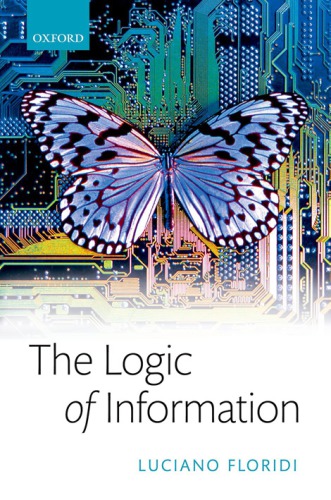
Product details:
ISBN 10: 0192570277
ISBN 13: 9780192570277
Author: Luciano Floridi
The Logic of Information A Theory of Philosophy as Conceptual Design 1st Edition Table of contents:
Part I: Philosophy’s Open Questions
1. What is a Philosophical Question?
Summary
1. Introduction: Russell’s ‘such ultimate questions’
2. The Variety of Questions
3. A Resource-oriented Approach to the Nature of Questions
4. Three Kinds of Question
5. Philosophical Questions as Open Questions
6. First Objection: There are No Open Questions
7. Second Objection: There are Too Many Open Questions
8. Third Objection: Open Questions are Unanswerable
9. Fourth Objection: Open Questions are Indiscriminate
Conclusion: Philosophy as Conceptual Design
2. Philosophy as Conceptual Design
Summary
1. Introduction: From the User’s Knowledge to the Maker’s Knowledge
2. Plato’s Wrong Step
3. The Maker’s Knowledge Tradition
4. A Constructionist Methodology
5. Minimalism
6. The Method of Levels of Abstraction
7. Constructionism
Conclusion: Against Degenerate Epistemology
3. Constructionism as Non-naturalism
Summary
1. Introduction: A Plea for Non-naturalism
2. The Nature of Naturalism
3. Two Indefensible Non-naturalisms: The Supernatural and the Preternatural
4. Two Defensible Non-naturalisms: The Normative and the Semantic
5. In Defence of Non-naturalism
Conclusion: The Artefactual Nature of the Natural
Part II: Philosophy as Conceptual Design
4. Perception and Testimony as Data Providers
Summary
1. Introduction: The Relationship between Knowledge and Information
2. A First Potential Difficulty
3. Some Background
4. Perception and the Phaedrus’ Test (Plato)
5. Testimony and the Parrot’s Test (Descartes)
6. Data Providers
7. A Second Potential Difficulty
8. More Background
9. The Vice Analogy
10. The Constructionist Interpretation of Perception and Testimony
11. Informational Realism: Structures, Interactions, and Causality
Conclusion: The Beautiful Glitch
5. Information Quality
Summary
1. Big Data
2. The Epistemological Problem with Big Data
3. From Big Data to Small Patterns
4. Information Quality
5. The Epistemological Problem with Information Quality
6. A Bi-categorical Approach to Information Quality
Conclusion: Back to Fit-for-Purpose
6. Informational Scepticism and the Logically Possible
Summary
1. Introduction: History and Analysis of Scepticism
2. The Two Faces of Scepticism
3. Non-naturalism and the Foundational Problem in German-speaking Philosophy
4. Coherentism, Naturalism, and the Refutation of Scepticism in British Philosophy
5. Pragmatist Epistemologies in American Philosophy
6. Possible Worlds and Borel Numbers
7. The Edit Distance as a Modal Metrics
8. Informational Scepticism or the Sceptical Challenge Reconstructed
9. The Redundancy of Radical Informational Scepticism
10. The Usefulness of Moderate Informational Scepticism
11. Objections and Replies
Conclusion: From Descartes to Peirce
7. A Defence of Information Closure
Summary
1. Introduction: The Modal Logic of Being Informed
2. The Formulation of the Principle of Information Closure
3. The Sceptical Objection
4. A Defence of the Principle
5. Objection and Reply
Conclusion: Information Closure and the Logic of Being Informed
8. Logical Fallacies as Bayesian Informational Shortcuts
Summary
1. Introduction: A Greener Approach to Logic
2. What are Logical Fallacies?
3. Do Formal Logical Fallacies Provide Any Information?
4. Formal Logical Fallacies and Their Explanations
5. Bayes’ Theorem
6. Bayes’ Theorem and the Fallacy of Affirming the Consequent
7. Bayes’ Theorem and the Fallacy of Denying the Antecedent
8. Logical Formal Fallacies and Their Bayesian Interpretation
9. Advantages of the Bayesian Interpretation of Formal Logical Fallacies
Conclusion: Rationality Regained
9. Maker’s Knowledge, between A Priori and A Posteriori
Summary
1. Introduction: The Question about Maker’s Knowledge
2. Maker’s Knowledge: Same Information
3. Maker’s Knowledge: Different Account
4. Maker’s Knowledge: ab anteriori
Conclusion: Some Consequences of the Analysis of the Maker’s Knowledge
10. The Logic of Design as a Conceptual Logic of Information
Summary
1. Introduction: Two Modern Conceptual Logics of Information
2. Design, Contradictions, and Dialetheism
3. The Logic of Design as a Logic of Requirements
Conclusion: From Mimesis to Poiesis
Afterword—Rebooting Philosophy
Introduction
Scholasticism as the Philosophical Enemy of Open Questions
Philosophical Questions Worth Asking
A Philosophical Anthropology to Approach Philosophical Questions
How to Make Sense of the World and Design It Today
Conclusion: Creative Destruction in Philosophy
References
Index
People also search for The Logic of Information A Theory of Philosophy as Conceptual Design 1st Edition:
what does conceptual design mean
what is conceptual design
philosophy conceptual analysis
philosophy of design
Tags:
Luciano Floridi,Logic,Information,Philosophy,Conceptual Design
You may also like…
Engineering
The Fourth Revolution How the infosphere is reshaping human reality 1st Edition Luciano Floridi
Politics & Philosophy
Politics & Philosophy - Social Sciences
Computers - Programming
Politics & Philosophy - Anthropology
Computers - Programming
A Philosophy of Software Design First Edition (V1.0) Ousterhout
Politics & Philosophy - General & Miscellaneous Philosophy
Computers - Computer Science


